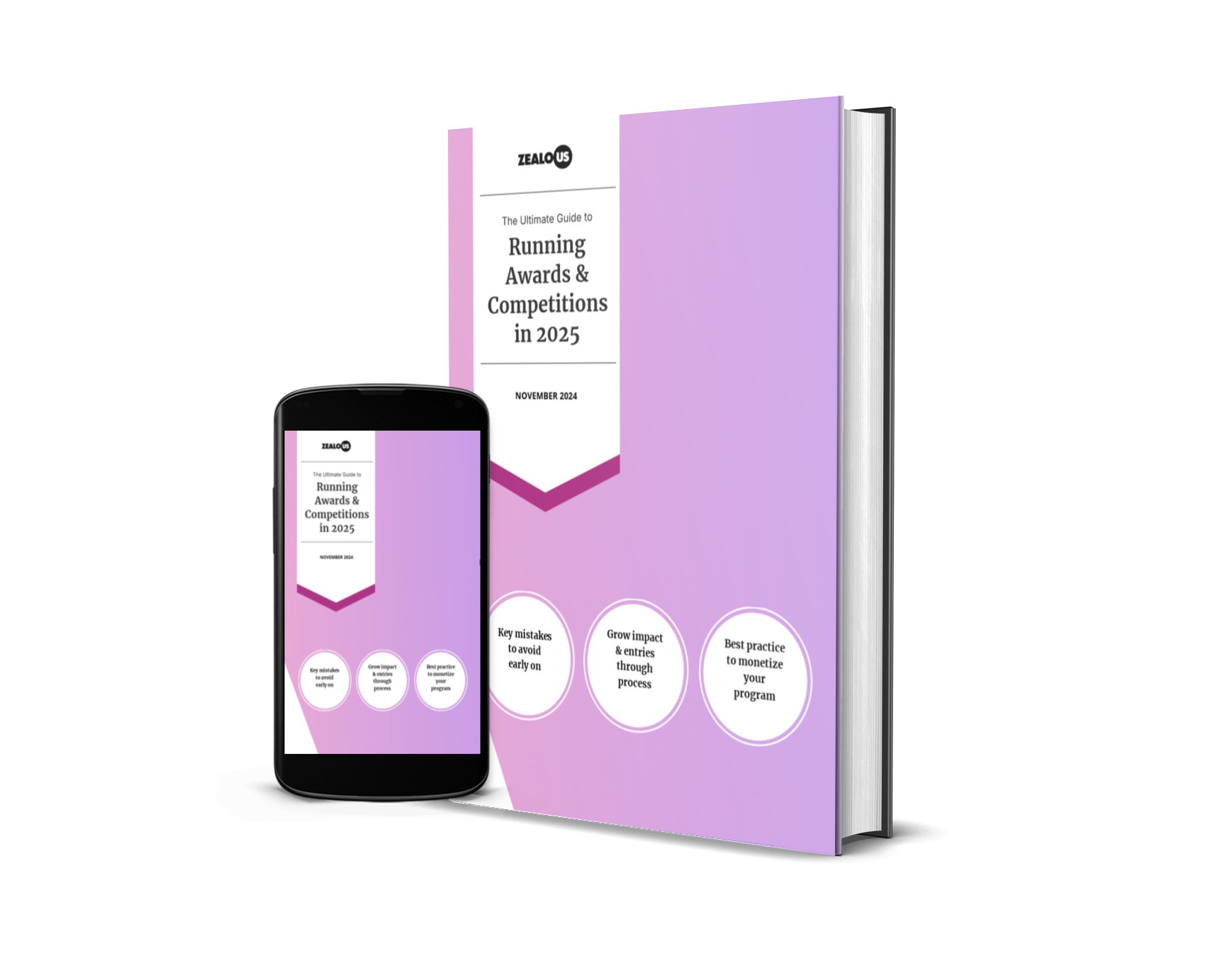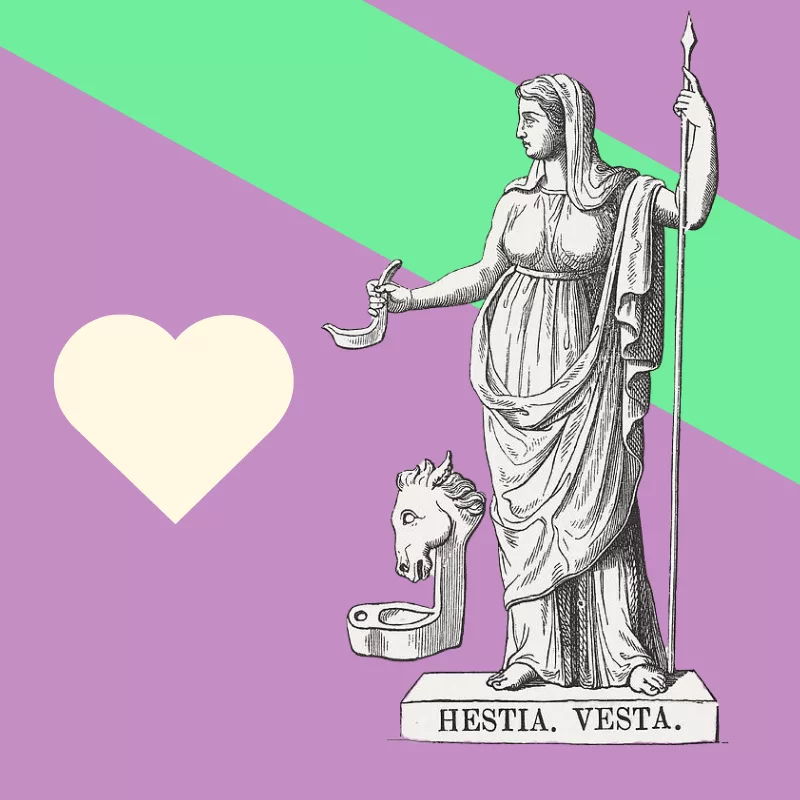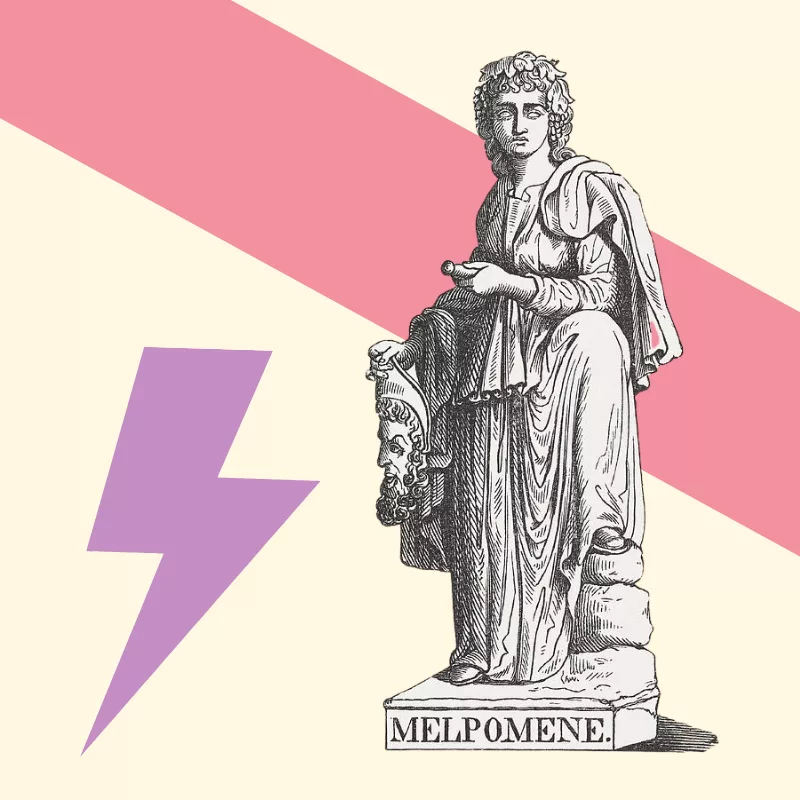This article covers:
- Strategic engagement opportunities at each stage
- Building partnerships before you launch
- Diversifying through intentional outreach
- Celebrating applicants before announcing winners
- Structuring results to create celebration moments
- Using public votes thoughtfully
- Choosing tools that support engagement
Running a competition, award, or open call isn’t just about collecting entries and announcing winners. It’s about building relationships, amplifying voices, and creating meaningful touchpoints with your community at every stage of the process.
Whether you’re planning your first open call or refining an established programme, understanding how to leverage each phase of your competition can transform passive participants into active advocates.
Map Your Engagement Opportunities Early
Every competition follows a natural lifecycle, and each stage offers distinct ways to connect with your community. The trick is identifying these opportunities during your planning phase, not scrambling to add them later.
Most programmes move through these stages: planning, programme announcement, open submissions, close submissions, selection (often with judges), results announcement (possibly in multiple rounds), and a celebration event. That celebration might be an award ceremony, exhibition opening, or the start of a residency.
Plan touchpoints before launch
Think about how each phase could involve different stakeholders. Some stages work brilliantly for social media campaigns. Others suit email outreach or partnership announcements. The key is planning these touchpoints before you launch, not treating them as afterthoughts.
Modern platforms should make this lifecycle management simple. If you’re manually coordinating submissions in spreadsheets whilst trying to manage judge access and track communications, you’re creating unnecessary work. The right tools automate these stages, freeing you to focus on the human connections that matter.
Build Your Network Before You Launch
The work starts before you announce anything. Identify organisations and networks aligned with your mission. These aren’t competitors (though don’t reach out to Pepsi if you are Coca-Cola). They’re potential collaborators.
Reach out with a genuine offer: you’ll help promote their initiatives if they’ll support yours. This isn’t transactional. It’s community building. When you eventually launch your programme, these relationships give you a ready audience of people who already understand what you’re trying to achieve.
These connections can contribute in various ways. Some might share your call out. Others might offer advice on your plans, join your judging panel, or help celebrate winners’ work. Even organisations that can’t help immediately will remember you reached out, and that recognition often leads somewhere valuable down the line.
The organisations you partner with shape who discovers your opportunity. If you only promote through your existing channels, you’ll only reach people who already know you exist.
Diversify Through Intentional Outreach
Want diverse submissions? Start with diverse networks. Reach out to organisations serving communities underrepresented in your sector. For games industry programmes, that might include Women in Games or BAME in Games. Every sector has equivalent networks.
This isn’t box-ticking. When communities see themselves reflected in your promotional partners, they understand they’re genuinely welcome. That psychological safety matters, particularly for first-time applicants questioning whether programmes are “for people like them.”
Your outreach strategy directly impacts who feels comfortable applying. It’s worth the extra effort to build genuine relationships rather than sending generic promotional emails to every organisation you can find.
Involve Your Team in Selection
External judges bring credibility and fresh perspectives. But don’t overlook the people already in your organisation.
Including your workforce in judging (even just preliminary rounds) creates alignment around your mission. It demonstrates trust in their judgment. It brings teams together around shared goals. And if your organisation is diverse, that diversity naturally flows into your selection outcomes.
Internal judging builds alignment
This internal involvement works particularly well for early-round shortlisting. Your team can help narrow hundreds of submissions down to a manageable number for external expert review. They’ll understand your mission more deeply, and you’ll benefit from their varied perspectives.
If your internal team lacks diversity, balance your full judging panel accordingly. Multiple viewpoints lead to fairer, more representative selections. Modern judging tools make it easy to involve multiple rounds of reviewers with different access levels and scoring criteria.
Celebrate Applicants Before Announcing Winners
Once submissions open, you’ll want to stay present in participants’ minds. You also want to encourage early submissions rather than last-minute panic applications.
One approach: let candidates know you’ll celebrate selected submissions on social media if they submit before a specific early deadline. Don’t promise you’ll share everyone’s work. Instead, highlight submissions that exemplify the qualities you value.
This rewards early submitters. It creates visibility for your programme. And it sets expectations about what strong submissions look like, potentially improving the quality of later entries.
For programmes you’ve run before, consider spotlighting past submissions. This shows newcomers what success looks like whilst celebrating previous participants.
Capture permissions upfront
Make this process smooth by capturing the right permissions and information upfront. When someone submits, ask if they consent to social media celebration and collect their social handles for tagging. Properly designed submission forms make this seamless.
Sharing entries from diverse candidates signals to similar communities that they belong in your programme. Representation matters in who feels welcomed to participate.
Insights like these straight to your inbox
Receive weekly tips from our founder to grow your program’s impact; regardless of what tools you use.
Structure Results to Create Celebration Moments
People love sharing achievements, however small (yay, someone completed a certificate and published it on LinkedIn!).
Publishing results in multiple rounds (longlists, shortlists, finalist announcements) creates these shareable moments. Each round gives participants reason to celebrate and amplify your programme.
Make this easy for them. Provide assets: laurels for profile images, graphics for social posts, announcement templates. The less work celebration requires, the more people will do it.
Recognition at any stage represents genuine achievement worth acknowledging.
Publishing your selection at each stage also builds trust. It demonstrates transparent process and highlights diversity across your selection journey, not just at the winner announcement. Transparency about who progresses through each round shows you’re taking the process seriously.
If your platform makes publishing staged results complicated, that’s a warning sign. Modern submission systems should support multiple rounds natively, with automated notifications and public-facing results pages that update automatically. Manual workarounds suggest you’re fighting your tools rather than using them effectively.
Use Public Votes Thoughtfully
Public voting can dramatically extend your programme’s reach. When candidates rally their networks for votes, you gain exposure to entirely new audiences.
The challenge: relying solely on public votes favours participants with larger existing networks. Someone with 50,000 Instagram followers will almost always beat a more deserving candidate with 500.
Make public votes meaningful by actively reaching out to your own communities. Don’t just leave it to candidates. Engage your organisation’s audiences, partners, and the networks you’ve built relationships with. Ask them to review entries and vote for work they genuinely rate highest.
Hybrid approaches work best
Structure your voting carefully. Consider hybrid approaches: public voting determines 15% of the outcome whilst expert judges handle the remaining 85%. Or use public votes for a separate “audience choice” award alongside judge-selected winners.
When done properly, public voting can be genuinely democratic and reflect community values. When done poorly, it becomes a popularity contest that disadvantages emerging voices without established platforms. Zealous enables flexible public voting that you can structure to serve your specific goals.
Plan for Impact Beyond the Deadline
Your programme doesn’t end when submissions close. The selection process, results announcements, and celebration events all offer engagement opportunities.
Modern platforms provide analytics showing exactly where potential applicants drop off. Maybe lots of people read your guidelines but don’t start applications. Perhaps they begin submissions but abandon them at your form stage. This data tells you where confusion or friction exists.
Use these insights to improve your process continually. If you’re seeing 60% drop-off at a specific submission step, something’s wrong there. Fix it for next time, or better yet, adjust it mid-campaign if your platform allows. Strategic programme management means learning from each cycle.
The celebration event deserves its own planning. Whether it’s an award ceremony, exhibition opening, or announcement livestream, this is your moment to showcase winners whilst reinforcing your values. Invite partners. Recognise judges. Thank participants. This event sets the tone for whether people will engage with your next programme.
Integrate Engagement From the Start
Creating meaningful engagement isn’t something you bolt onto an existing programme. It requires intentional planning from day one.
Identify partnership opportunities during your earliest planning. Build celebration moments into your timeline. Plan your communications strategy before submissions open, not after. Structure your selection process to include multiple rounds if you want that engagement. Decide on public voting parameters early.
- Partnership development: Begin building relationships 6+ months before launch
- Celebration planning: Integrate social media moments into your timeline
- Communications strategy: Map all touchpoints before opening submissions
- Selection structure: Plan multiple rounds to create celebration opportunities
- Voting parameters: Decide hybrid approaches early in planning
When engagement is integrated rather than added, it feels natural to participants. They experience a cohesive journey from first discovering your programme through celebrating winners. That coherent experience is what builds lasting community.
The organisations running the most successful programmes aren’t necessarily those with the biggest budgets. They’re the ones who think strategically about community at every stage. They understand that engagement is cumulative, with each positive touchpoint building toward long-term relationships and amplified impact.
Choose Tools That Support Engagement
Your choice of submission management platform directly affects your ability to execute these strategies.
Look for systems that automate communications so you can focus on personal touchpoints rather than manual administrative tasks. You need platforms that handle multiple selection rounds natively, not require workarounds. Public voting should be a toggle switch, not a technical project. Analytics showing your application journey should be built-in, not requiring separate Google Analytics configuration.
Red flags to watch for
If basic engagement features are treated as premium add-ons requiring higher-tier subscriptions, question whether that platform actually prioritises helping you build community. The best tools include these capabilities by default because they understand they’re essential, not optional extras.
Similarly, if a platform requires weeks of onboarding before you can launch, consider whether that serves your timeline or theirs. Some programmes need to launch quickly, taking advantage of narrow promotional windows or time-sensitive opportunities. Mandatory waiting periods can kill momentum.
Finally, make sure your submission platform actually looks appealing to participants. A clunky, dated interface sends the wrong message about your programme’s professionalism. Modern, intuitive design isn’t vanity; it’s respecting your community’s time and demonstrating you value their experience. Research shows that sleek, user-friendly interfaces can increase completion rates significantly, reducing dropout from confused applicants.
Remember Your Mission
All these strategies serve one goal: amplifying your impact. Whether you’re supporting emerging artists, recognising innovation, building your membership, or championing a cause, engagement expands your reach and deepens your relationships.
Take time during planning to identify which engagement strategies align with your mission and resources. You don’t need to implement everything. Start with two or three approaches that feel authentic to your organisation. You can always add more sophistication in future programmes.
The organisations that grow their impact year after year aren’t necessarily doing more. They’re doing the right things consistently, learning from each programme, and building genuine relationships with their communities rather than treating open calls as isolated events.
Behind every submission is a person taking a risk. The way you engage with them throughout your programme lifecycle shapes whether they’ll trust you again in future.
Finally, remember that behind every submission is a person taking a risk. They’re putting their work out there, hoping you’ll recognise its value. The way you engage with them throughout your programme lifecycle, and especially how you communicate results and celebrate participants, shapes whether they’ll trust you again in future.
Your programme could be the first opportunity someone applies to. Make sure your engagement strategies leave them feeling valued, whether they win or not. That’s how you build communities that sustain impact over years, not just programmes that generate one-time engagement.
We can help
You focus on the impact, we’ll provide the submission management tools
But we’re not alone in the space – here are 8 others you may wish to consider (even if we would prefer you choose us!).
Want us to write more content like this? Give it a like
Share

Guy Armitage is the founder of Zealous and author of “Everyone is Creative“. He is on a mission to amplify the world’s creative potential.
Frequently Asked Questions
How early should I start building partnerships for my competition?
Start building relationships at least six months before you plan to launch, ideally longer if this is your first programme. Genuine partnerships take time to develop. You can’t email 50 organisations two weeks before your submission deadline opens and expect meaningful collaboration.
Begin by engaging with their work, offering to support their initiatives, and having genuine conversations about shared goals. By the time you launch your programme, these relationships should feel natural rather than transactional. The organisations most successful at building diverse, engaged communities are those that view partnership development as ongoing relationship building, not a marketing tactic deployed during launch week.
Should I share submissions on social media even if the work isn’t excellent?
No. Only celebrate submissions that genuinely exemplify what you’re looking for. This isn’t about participation trophies. When you spotlight work on social channels, you’re setting expectations for future applicants whilst representing your organisation’s standards.
Choose submissions that demonstrate the qualities you value and help potential applicants understand what strong entries look like. If you’ve received permission to share someone’s work but it doesn’t meet your bar, simply don’t feature it. Your selection here shapes perceptions of your programme more than you might expect. This selective approach also rewards those who submitted thoughtful, high-quality entries early rather than treating all submissions equally regardless of effort or alignment with your brief.
How many rounds of results should I publish?
This depends on your entry volume and programme structure. For competitions with 100-300 submissions, publishing a shortlist then winners works well. Larger programmes with 500+ entries might benefit from longlist, shortlist, and finalist rounds. Each additional round creates celebration moments but also requires coordination time.
If you’re publishing multiple rounds, plan this timeline before launching. Tell participants upfront when each round will be announced. Modern submission platforms should make publishing multiple rounds straightforward with automated notifications to those progressing. If your current system makes this painful, that’s a sign you might need better tools.
Does public voting actually increase engagement or just favour popular people?
Both, honestly. Public voting definitely increases awareness as candidates share with their networks. You’ll reach people who never would have discovered your programme otherwise. However, votes alone favour participants with large existing followings rather than necessarily the best work. That’s why successful programmes structure public voting carefully.
Consider making it one component weighted at 20-30% of the decision alongside expert judging. Or use public votes for a separate “audience choice” award whilst judges select the main winners. The key is actively promoting voting to your own communities rather than leaving it entirely to participants. Reach out to partners, engage your mailing lists, and mobilise your social audiences to review entries and vote for work they genuinely appreciate.
How do I actually approach organisations to become partners or judges?
Start with organisations whose work you genuinely know and respect. Reference specific projects they’ve done that align with your programme’s goals. Don’t lead with what you need from them. Instead, explain what you’re doing and why you think their perspective would be valuable.
Be specific about the time commitment – “reviewing 20 finalists over two weeks” is easier to commit to than vague “help us judge.” Offer them visibility through your channels, acknowledgment on your website, and access to the work being submitted. Most importantly, make it easy: provide clear criteria, a simple scoring interface, and be responsive when they have questions. The organisations that say yes to judging partnerships are often those who see it as a way to discover new talent or connect with communities relevant to their own mission.
Should I involve my internal team in judging or keep selection external?
Both, ideally at different stages. Internal team involvement in early rounds builds ownership and clarity around your programme’s goals. It helps teams understand what you’re trying to achieve and creates enthusiasm across your organisation. Staff judging also surfaces diverse perspectives you might miss with only senior leadership deciding.
However, for final rounds, external judges add credibility and specialist expertise your team may lack. They also bring their own networks and can champion winners authentically within their communities. Structure it so internal teams handle initial screening to manageable numbers, then external specialists make final selections. This approach develops your team’s judgment whilst maintaining external validation that matters to participants.
What’s the best way to promote public voting without it becoming a pure popularity contest?
Don’t just open voting and hope. Actively curate who sees the vote. Send targeted emails to your mailing list explaining why their input matters and what they should look for when reviewing entries. Reach out to partner organisations asking them to encourage their communities to participate.
Create social content that highlights specific entries and asks genuine questions: “Which approach to [your theme] resonates most?” This frames voting as thoughtful consideration rather than blind loyalty. Weight public voting alongside expert judging – perhaps 25% public, 75% judges – or create a separate “audience choice” award so popularity doesn’t override quality. The ideal scenario happens when you mobilise your own communities to engage meaningfully with the work, rather than leaving promotion entirely to participants.











